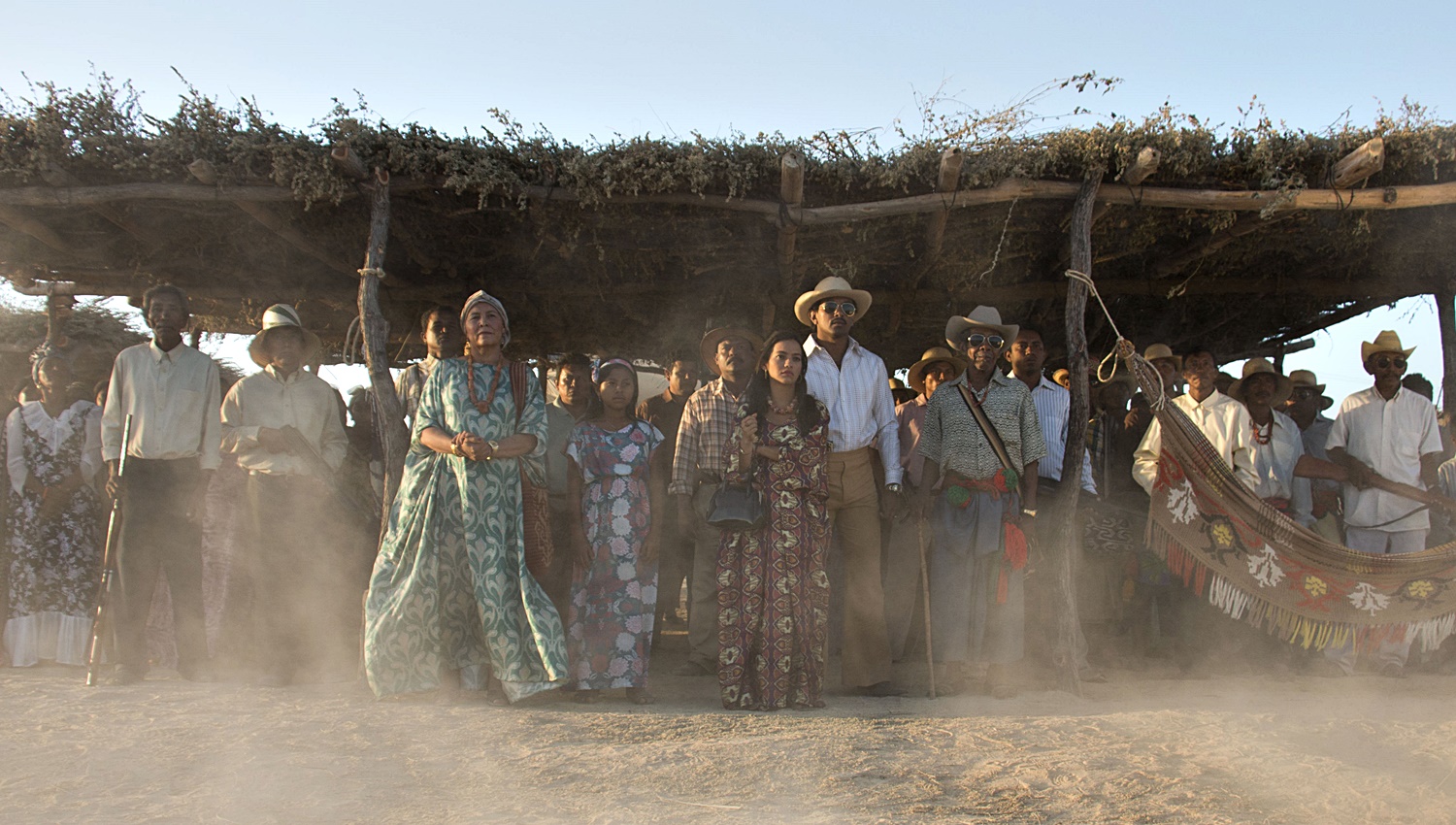
Birds of Passage
Dustin Chase
In a different year, “Birds of Passage,” along with a myriad of other mildly interesting foreign film submissions would have been sure bets for the Oscar lineup. However, the bar for foreign films has been raised extraordinary high now thanks to Alfonso Cuaron’s “Roma.” Colombia’s submission to the 91st Academy Awards didn’t make the nominee roster, yet “Birds of Passage” is a striking film that will linger in your mind for days after. “Birds of Passage” could very easily be converted and translated into a Martin Scorsese crime thriller with a little creative screenwriting. Despite being a film about tribes and clans living in relative isolation, what the viewer will take away from a culture that puts tradition and mysticism above progress and common sense isn’t as foreign as you might expect.
Based on a true story that occurred between 1960 – 1980, it follows the decline of a Native American tribe, the Wayuu, located in the Guajira Peninsula, the northernmost part of Colombia. Úrsula (Martínez) is the leader of this special tribe, the guardian of the talisman, and the most respected elder and visionary for miles. Her advice is followed by anyone and everyone. After a year of isolation, a rite of passage to womanhood, her daughter Zaida (Reyes )is offered up to be married. Outsider Rapayet (Acosta) steps forward, eager to learn the ways of Wayuu, and willing to do whatever he must to make Zaida his bride. The dowry he must produce in order to please the Wayuu tribe is great. Best mate Moisés (Narváez) introduces him to some hippies in the U.S. Peace Corp who were desperate for marijuana. Drug trafficking turns out to be a fast, lucrative way to earn his bride’s dowry, and within weeks he becomes a made-man in a drug cartel.
There is a lot for the viewer to process when you dig deeper into this material about what’s truly important to us as individuals, preservation or progress.
Once the viewer understands the framework directors Cristina Gallego and Ciro Guerra are working with, Gallego’s idea for this story really starts to take shape. Maria Camila Arias’s screenplay takes a lot of information and lays it on thick, with many unfamiliarities that will be difficult for some to decipher. Why all the necklaces? Where do these goats come from and why do the Wayuu trade them for virgins? Movies about drug trafficking set in Colombia are about as common as romantic comedies set in New York, but “Birds of Passage” is an uncommon film. It’s “Goodfellas,” “Casino,” or “The Godfather” set in a primitive, tropical setting. Like those films, “Birds of Passage” becomes a guilty pleasure for the viewer who, uninvested in any particular character, watches as each of them perpetuate their own demise.
“Don’t upset the spirits,” Úrsula warns, one of her many deeply rooted beliefs she shares. It takes a few chapters (the film is divided into five) before some of the younger characters begin to reject the religious/spiritual traditions of the tribe. Úrsula, the Don Corleone of this story, destroys her own family with each decision she makes in her efforts to preserves ancient Wayuu traditions. There are vivid and memorable shots by cinematographer David Gallego (“Embrace the Serpent”), but the dramatic look of this isolated and barren location is a testament to the vision of the production and set designers. There is a lot for the viewer to process when you dig deeper into this material about what’s truly important to us as individuals, preservation or progress.
Final Thought
"Birds of Passage" isn’t an easily forgotten story that in context resembles some of the more familiar Italian American drug family epics.
